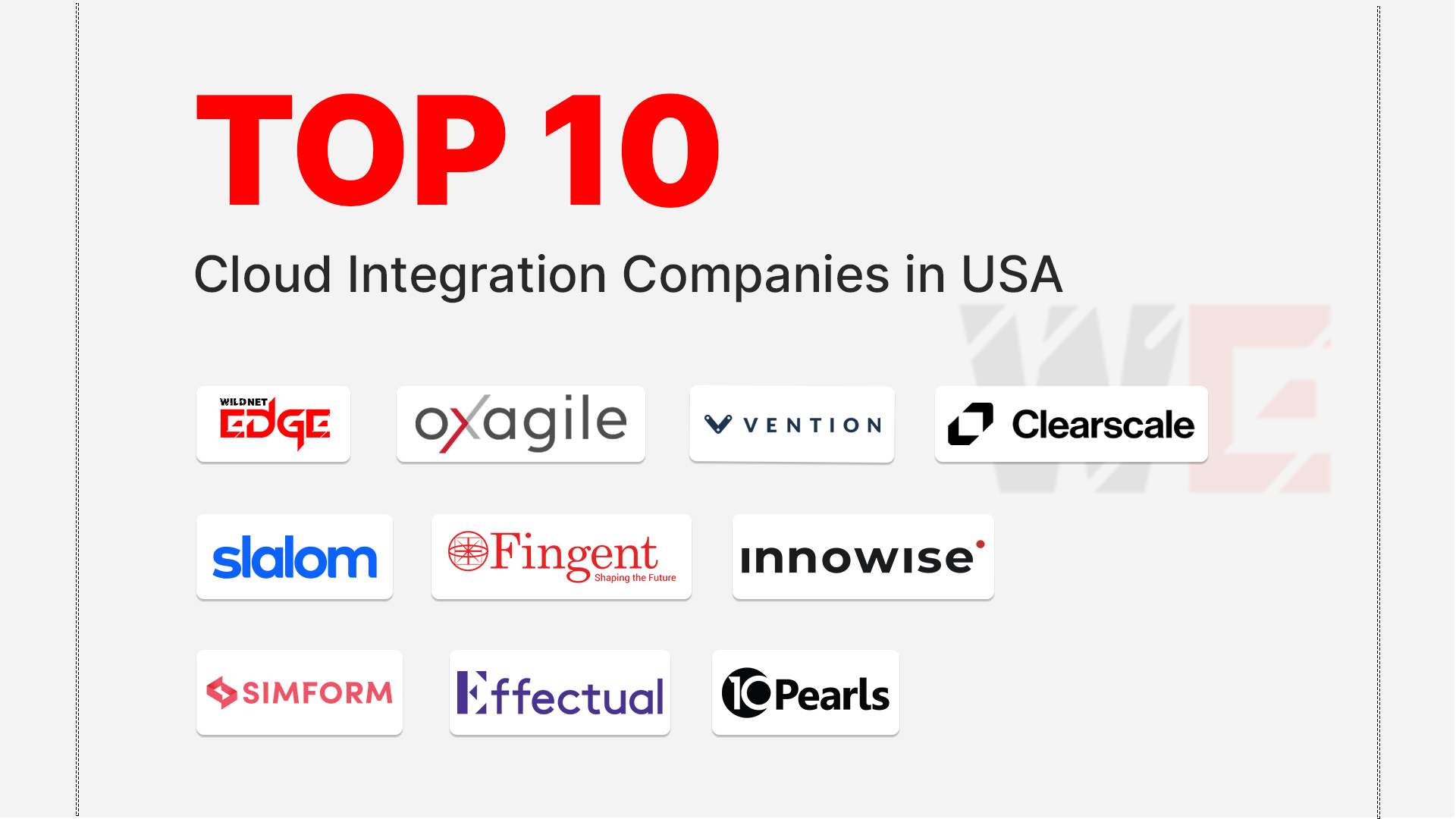Are you struggling to manage your investments effectively? The complexity of wealth management can be overwhelming. This is where wealth management app development comes into play. Have you considered how a tailored app could revolutionize your financial planning? With advanced technology, managing your money has never been easier. In this blog, we will delve into the emerging trends in wealth management app development and explore how these innovations can enhance your investment strategies. As technology advances, the landscape of investing is rapidly changing, and wealth management apps are a significant driver of this evolution.
Understanding Wealth Management App Development
Wealth management app development is at the forefront of redefining how individuals manage their finances. It involves creating user-friendly applications designed to help users track and manage their investments, analyze their financial health, and make informed decisions. Broadly, wealth management applications are tailored to serve varying clientele, whether they are self-directed investors or those seeking professional guidance.
Key Components of Wealth Management Apps
Successful wealth management applications combine various essential features designed to enhance user experience and improve financial outcomes. Some of the key components include:
- Portfolio Management: Users can track their investments in real time, view asset performance, and receive alerts about significant changes.
- Goal Setting Tools: These features allow users to set specific financial goals—be it retirement savings, buying a home, or funding education—and the application suggests actionable steps to achieve them.
- Educational Resources: Many apps incorporate financial literacy tools, providing users with the knowledge they need to make informed investment choices.
- Personalized Recommendations: Wealth management apps driven by artificial intelligence can analyze user behavior and preferences to provide tailored advice and investment opportunities.
By integrating these components, developers ensure that wealth management apps deliver comprehensive financial planning solutions that cater to the diverse needs of users.
Evolution of Financial Planning Tools
Over the past decade, financial planning tools have evolved from basic spreadsheets to sophisticated digital applications. Initially, investment management relied heavily on face-to-face consultations and physical brokerage services. However, the rise of digital finance has transformed the landscape:
- Early Tools: Basic budgeting apps and spreadsheets mostly helped users track expenses and plan budgets without real-time analysis.
- Emergence of Robo-Advisors: These platforms revolutionized wealth management by providing automated investment services based on algorithms, significantly lowering costs and making the services accessible to a broader audience.
- Integration of Advanced Technologies: With the advent of AI, machine learning, and big data analytics, wealth management applications now offer predictive modeling and personalized insights, ensuring users receive up-to-date information about market trends and financial products.
Today, these financial planning tools are not just about managing money but also about empowering users with the insights and tools they need to make informed decisions.
Benefits of Wealth Management Apps
Wealth management apps offer multiple benefits that enhance the investment experience and streamline financial planning.
Enhanced User Experience Through Technology
Technology has significantly improved the user experience in wealth management, addressing common pain points for investors. By employing user-centric design principles, apps reduce complexity and enhance engagement.
For instance:
- Intuitive Interfaces: Modern wealth management apps typically feature clean, user-friendly interfaces allowing users to navigate through their portfolios smoothly.
- Real-Time Accessibility: With mobile applications, users can access their investment accounts anywhere at any time, empowering them to make timely, informed decisions.
- Customizable Dashboards: Users can personalize their dashboards to display key performance indicators like net worth, asset allocation, and cash flow, making important information readily available.
By enhancing the overall user experience, these apps make financial management accessible and enjoyable.
Integration with Financial Planning Services
Wealth management apps not only assist in tracking assets but also seamlessly integrate various financial planning services, facilitating holistic financial management.
- Collaborative Features: Many apps allow users to connect with financial advisers directly, providing expert advice when necessary.
- Holistic Financial View: By integrating accounts from different banks and investment platforms, users can consolidate their financial data in one place, giving them a comprehensive view of their overall financial health.
- Advanced Planning Capabilities: Features like retirement calculators, tax optimization features, and estate planning tools help users develop winning strategies for long-term wealth accumulation.
With these integrations, wealth management apps transcend basic tracking, enabling comprehensive financial planning tailored to users’ unique needs and goals.
Technologies Driving Wealth Management Apps
The evolution of wealth management apps is propelled by various cutting-edge technologies that enhance functionality and security.
AI and Machine Learning Applications
Artificial intelligence (AI) and machine learning are two of the most significant technological advancements impacting wealth management app development. These technologies play pivotal roles in revolutionizing how investment insights are generated and financial decisions are made.
- Predictive Analytics: AI analyzes large data sets to forecast market trends, enabling users to make informed investment choices.
- Personalization: Machine learning algorithms can adapt to user behaviors and preferences, providing tailored recommendations based on individual financial situations.
- Risk Assessment: AI helps identify potential risks and suggest mitigation strategies, assisting users in managing their investments more effectively.
As AI continues to evolve, it is expected to play an even larger role in shaping personalized and strategic wealth management solutions.
Blockchain for Security and Transparency
Blockchain technology offers robust security and transparency features critical to wealth management app development. This decentralized ledger technology is increasingly utilized in finance due to its ability to safeguard sensitive transaction data.
- Security: The cryptographic nature of blockchain ensures that transactions are secure and immutable, reducing the risk of fraud in financial dealings.
- Transparency: Due to its public nature, blockchain allows for clear tracking of asset ownership and transaction history, boosting user trust.
- Smart Contracts: Automatically executed contracts on the blockchain can streamline processes, such as the seamless execution of trades and automatic transfers once conditions are met.
By leveraging blockchain, wealth management apps can provide an unparalleled level of security and transparency to users.
Target Audience for Wealth Management Apps
Understanding the target audience is crucial for wealth management app developers. The diversification of investor demographics means that personalized features catered to different segments can significantly enhance user satisfaction.
Millennials vs. Older Investors
Millennials and older investors have different preferences and approaches to wealth management, which reflects their varying life experiences and financial goals.
- Millennials: Often tech-savvy, they seek mobile-first solutions that allow for instant access to information. Features that encourage social investing or gamification elements can also appeal to this group.
- Older Investors: Typically looking for stability and a more traditional approach, they tend to prefer a blend of digital services and personalized advice. Features such as live chat with financial advisors and comprehensive educational resources resonate with this demographic.
Designing apps that cater to both groups ensures a wider adoption rate.
Tailoring Features for Different User Segments
Customizing app features based on user segments enhances both satisfaction and engagement. For instance:
- Gamification for Young Investors: Integrating game-like features such as rewards for completing financial education modules can keep younger users engaged.
- Comprehensive Tracking For Experienced Investors: For seasoned investors, providing detailed analytics and customizable reporting tools can enhance their decision-making processes.
- Budgeting Tools for New Investors: First-time investors may benefit from simplified budgeting tools that help them understand their financial capabilities while exploring investment opportunities.
By recognizing the particular needs of their target audience, app developers can create solutions that engage users effectively and lead to greater financial literacy.
Challenges in Wealth Management App Development
Despite the enormous potential for wealth management apps, developers face several challenges that could hinder their success.
Regulatory Compliance and Security
Navigating the complex regulatory landscape governing financial markets is one of the foremost challenges for wealth management app developers.
- Compliance: Developers must ensure their applications comply with various local and international financial regulations such as Know Your Customer (KYC) and Anti-Money Laundering (AML) laws. Failure to comply can lead to severe penalties and loss of credibility.
- Data Security: Strong security measures are necessary to protect sensitive user information. Implementing encryption, secure access controls, and regular security audits can help minimize risks associated with data breaches.
Balancing innovation while adhering to regulatory requirements is crucial for the long-term success of any wealth management application.
Technical Challenges and Solutions
Developing wealth management apps entails several technical challenges related to software performance and integration.
- Scalability Issues: As user bases grow, apps must scale effectively while maintaining performance. Optimization techniques, like cloud hosting, can accommodate increasing demands on resources.
- Seamless Integrations: Successful apps need to integrate with multiple financial systems securely. Using APIs and tools designed for secure data exchange can ease the integration process.
- User Experience Design: Striking a balance between advanced features and usability can be challenging. Developers should invest in user testing and feedback loops to ensure interfaces remain intuitive.
By addressing these technical challenges head-on, developers can create more robust and user-friendly wealth management solutions.
The Future of Wealth Management Apps
As the demand for streamlined financial solutions surges, the future of wealth management apps appears promising.
Trends to Watch in Financial Technology
The landscape of financial technology is constantly evolving. Keeping an eye on emerging trends can provide insights into the future of wealth management apps:
- AI-Driven Personalization: Expect to see continued advancements in personalization driven by AI, allowing for hyper-targeted financial services.
- Increased Engagement via Social Media: Financial social networks may gain popularity, encouraging shared learning and investment experiences between users.
- Sustainability-Focused Investing: As social consciousness rises, more apps might offer features that promote sustainable investing options, appealing to a market increasingly concerned with environmental impact.
Stay tuned to these trends for a deeper understanding of how they may shape the future of wealth management.
Predictions for User Adoption and Engagement
The increased integration of technology in personal finance will likely lead to higher user adoption rates of wealth management apps. Predictions indicate:
- Growth of the Wealthy Middle Class: As younger generations accumulate wealth, their demand for accessible financial tools will drive more users to adopt wealth management apps.
- Improved User Retention Rates: Enhanced user experiences that integrate educational and personalized features may result in greater engagement, leading to long-term user retention.
- Increased Investment in Technology: Financial institutions are anticipated to invest significantly in app development, improving existing platforms and creating new ones.
As these trends unfold, wealth management apps will increasingly become a staple for financial planning in the modern era.
Conclusion and Call to Action
We have explored how wealth management app development is shaping the future of investments, benefiting users through technology-assisted financial planning. The blend of AI, machine learning, and blockchain creates immense potential for customization and security, vital for effective wealth management. By understanding the target audience and navigating challenges, developers can introduce successful solutions in this burgeoning market. As an AI-first company, Wildnet Edge stands at the forefront of wealth management app development, offering expertise and the latest innovations to meet evolving user needs. We encourage you to consider personalized app solutions to enhance your financial planning and investment strategies. Don’t miss out on this digital transformation that could redefine your financial future.
FAQs
Q1: How does wealth management app development benefit investors?
Wealth management app development provides easy access to real-time financial data, enhancing decision-making for investors by allowing them to monitor their assets and make informed choices.
Q2: What are the key features of a financial planning app?
Key features of a financial planning app include portfolio tracking, goal setting, personalized investment advice, budgeting tools, and educational resources, all tailored to user needs.
Q3: How does AI influence wealth management app development?
AI offers insights through predictive analytics, enabling better user investment decisions by forecasting trends and personalizing recommendations based on big data analysis.
Q4: What challenges do developers face in wealth management app development?
Developers must navigate regulatory compliance, ensuring adherence to laws, and implement robust security measures to protect user data against breaches.
Q5: What’s the future outlook for investment management apps?
The future looks promising with continual advancements in technology, increasing user engagement, a growing demand for tailored solutions, and the rise of sustainability-focused investment options.

Nitin Agarwal is a veteran in custom software development. He is fascinated by how software can turn ideas into real-world solutions. With extensive experience designing scalable and efficient systems, he focuses on creating software that delivers tangible results. Nitin enjoys exploring emerging technologies, taking on challenging projects, and mentoring teams to bring ideas to life. He believes that good software is not just about code; it’s about understanding problems and creating value for users. For him, great software combines thoughtful design, clever engineering, and a clear understanding of the problems it’s meant to solve.
 sales@wildnetedge.com
sales@wildnetedge.com +1 (212) 901 8616
+1 (212) 901 8616 +1 (437) 225-7733
+1 (437) 225-7733















 ChatGPT Development & Enablement
ChatGPT Development & Enablement Hire AI & ChatGPT Experts
Hire AI & ChatGPT Experts ChatGPT Apps by Industry
ChatGPT Apps by Industry ChatGPT Blog
ChatGPT Blog ChatGPT Case study
ChatGPT Case study AI Development Services
AI Development Services Industry AI Solutions
Industry AI Solutions AI Consulting & Research
AI Consulting & Research Automation & Intelligence
Automation & Intelligence















